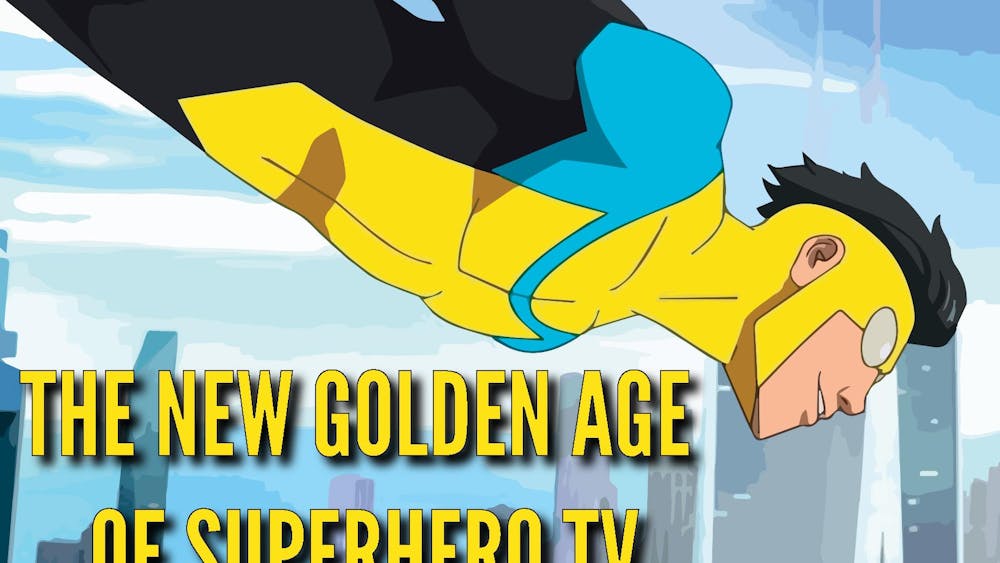
The phrase “Ad Astra” is Latin for “to the stars.” The movie “Ad Astra” makes reference to this in its opening with a red, inky font that calls to mind the opening crawl of “Blade Runner;” the word “replicant” practically bleeds. It’s the first of many allusions director James Gray (“The Immigrant,” “The Lost City of Z”) makes to the sci-fi that inspired him.
Distinguished by his penchant for the past, Gray’s inspiration comes from everywhere imaginable. His cold, almost clinical direction will no doubt be attributed to director Stanley Kubrick; the shadow of “2001: A Space Odyssey” looms large to this day. There are shades of “Solaris” here too, especially evident in how Gray uses outer space to explore humanity’s inner space. Just the other day in my residence hall, when an ad for the film played on TV, somebody said: “That looks like ‘Interstellar.’” But ultimately, these comparisons do “Ad Astra” little justice. For while its ingredients are familiar, its vision is entirely distinct.
“Ad Astra,” although directed and co-written by Gray, stars and is produced by Brad Pitt, whose name-brand talent will no doubt mislead moviegoers into thinking the film is mainstream. But “Ad Astra” is arthouse wrapped in a commercial skin, and it makes you wonder whether the suits at Fox pulled any fast ones in the editing room, especially when they realized they’d sunk $100 million into a slow-burn character study. In fact, the weakest link in “Ad Astra” — the clunky voiceover sprinkled throughout the film — feels just like that: something a worried studio executive forced Pitt to record at the last minute. But the meddling stops there and — for anyone willing to sink their teeth into it — “Ad Astra” has plenty of meat on its bones.
Pitt plays Major Roy McBride, a member of an elite, interstellar branch of the United States Military called the “Space Command.” If that reminds you of something (or someone), perhaps it’s supposed to. Anyways, all is fine and well in the universe until the surge, an antimatter shock wave coursing from the far reaches of the galaxy that threatens Earth’s existence. Pitt is called to serve. Why? Well, SpaceComm suspects Roy’s father, the revered astronaut Clifford McBride (Tommy Lee Jones), is responsible.
If that sounds like too much “science” and not enough “fiction,” don’t worry. Story in “Ad Astra” is merely setting. What really fascinates Gray aren’t your typical sci-fi trappings, but their greater implications. Why do we fear we’re becoming our parents? Why do we become them in spite of it? What compels an explorer to abandon civilization? And moreover, are these people really heroes, or are they even bigger cowards than the rest of us?
Roy is a character brimming with loneliness and teeming with regret. Abandoned by his father and his wife (a blink-and-you’ll-miss-her Liv Tyler), Roy is subjected to one psychological evaluation after another in which his SpaceComm superiors drill his mind with very little care for the consequences. Roy has closed himself off from the world both emotionally and literally. In Roy’s sad stoicism, Pitt is perfect. In an understated but poignant performance — and coming off the coattails of “Once Upon a Time in Hollywood” — Pitt reminds us he’s a much finer actor than anybody gives him credit for. Ruth Negga and Donald Sutherland also appear, but this is Pitt’s show. Well-made as it is, the movie wouldn’t be half as good without him.
Speaking of well-made, the production value is nothing short of staggering. Cinematographer Hoyte van Hoytema (a frequent Christopher Nolan collaborator) makes exceptional use of color, be it the black-and-white coolness of the lunar surface, the hazy oranges of Mars or the deep blues of Neptune. Max Richter composed the score, which often shakes your seat with power. Through them both, Gray fashions a vivid sci-fi world; one that feels like it extends well beyond either end of the screen.
In its final stretches — its most unexpected, stirring moments — “Ad Astra” asks a new question, one that’s somehow the scariest: What if we’re alone in the universe? How do we respond to that emptiness? Lucky for us, Gray has an answer. And it’s closer to home than Roy thinks.
Movie: “Ad Astra”
Director: James Gray
Starring: Brad Pitt, Tommy Lee Jones, Liv Tyler
If You Like: “Interstellar,” “The Lost City of Z”
Shamrocks: 4 out of 5












